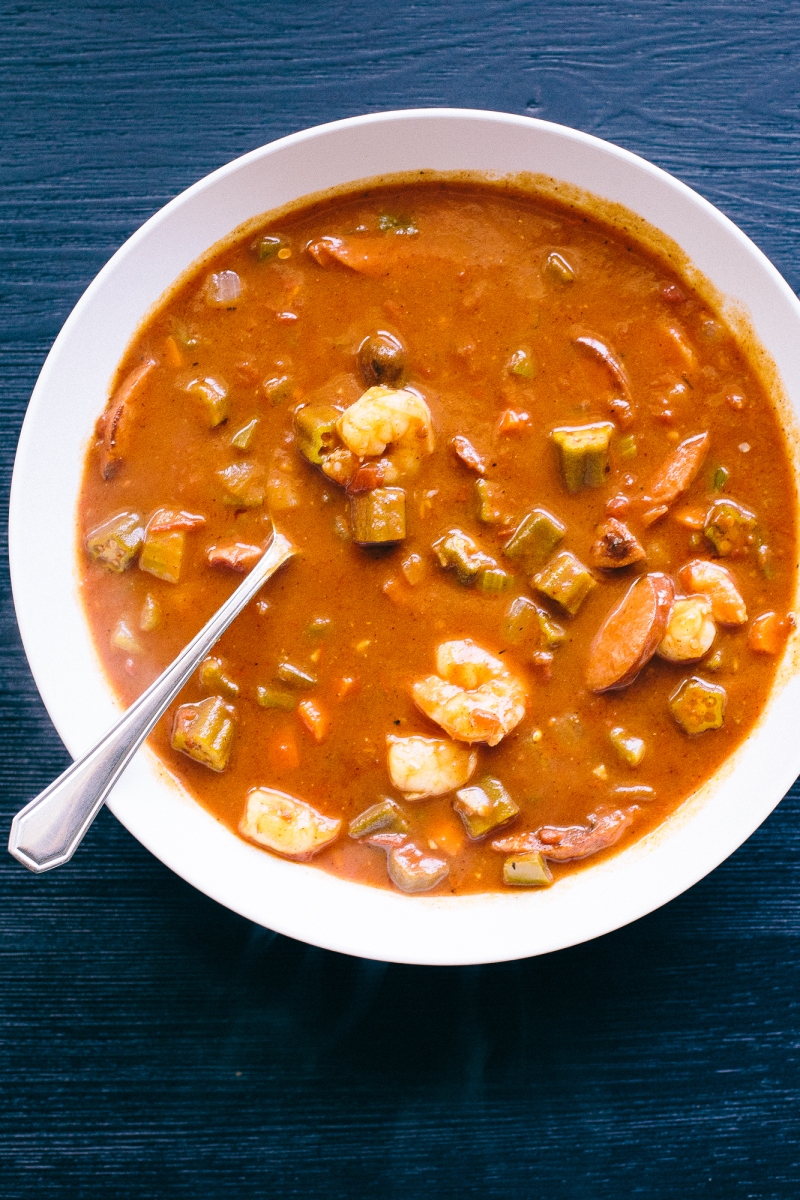
Gumbo is a stew of Louisiana origin, dating back as far as the 18th century. As with Jambalaya, there are two popular versions of gumbo, Creole and Cajun; generally, the former includes tomatoes, while the latter omits them. It can be made with all sorts of meats, from chicken, to rabbit, to nutria, to oysters; today, we’re going to make one with shrimp and andouille sausage.
There are several ways to prepare gumbo, many of them influenced by how you thicken the stew. Most methods today include a French-inspired flour roux, while others use okra or filé powder (ground sassafras leaves) – or combination – as a thickener. I’ve found that mochiko (sweet rice flour) makes the best gluten-free roux for gumbo, with plain white rice flour coming in second – but on their own, they’re not quite enough to thicken the gumbo to what I’d like (I tried simply adding more flour, but it overtook the dish’s texture and flavor). In the end, a combination of rice flour roux and okra worked best, as the roux dampened okra’s sliminess, and adding a bit of optional gumbo filé powder at the end gave the stew a perfect earthiness, befitting a warm Southern kitchen.
Gumbo is often characterized by its dark roux, made by stirring the roux over an open flame for up to an hour, right until it’s at the threshold of being burnt. I’ve found that a rice flour roux tends to burn too quickly when compared to a traditional wheat flour roux, so my solution is pretty simple: roast the flour in the oven to a golden brown before turning it into a roux. This also gives you some time to multitask, and simmer up a quick shellfish broth using shrimp shells and clam juice, while the flour browns.
The origin of the word “gumbo” is a bit of a mystery. It’s commonly thought that it is either derived from the Choctaw word for filé powder (kombo), since the spice came from similar Native stews from the region, or the Bantu word for okra (ki ngombo) – as the vegetable was introduced to the area via the West African slave trade. Regardless of its origin, gumbo is a perfect example of the cultural melting pot that eventually came to exemplify Louisiana cuisine, with its French, Native, and African influences.
Finally, I would like to note that this isn’t a weeknight-friendly meal (unless, of course, you have a weeknight off, or you’re unemployed). But that’s the beauty of gumbo – when you spend a couple hours pouring yourself into a cooking project, a bit of your soul joins the dish.
